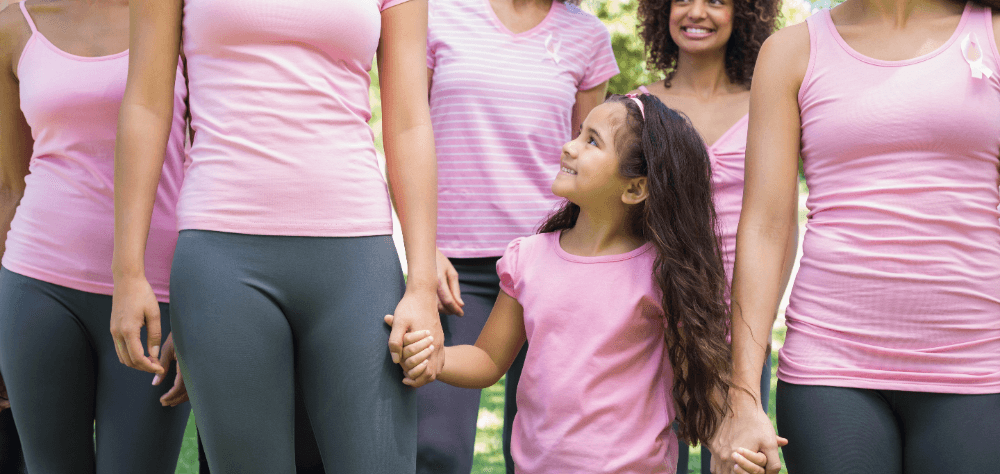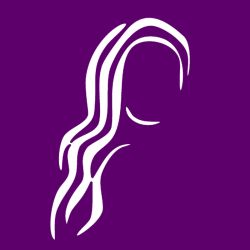
Hearing stories of breast cancer patients online or from family members can be alarming. Breast cancer is a terrifying prospect, and while it has a high survival rate if caught early, many women and even some men still die from this disease every year. While it is most likely to develop in middle age and older women, it has, in some instances, appeared in young adults, and even rarer, in teenagers, so monitoring should be a part of every woman’s regular healthcare routine.
According to the American Cancer Society, breast cancer is the most commonly diagnosed form of cancer among women and the second leading cause of death among women. Understanding the symptoms and signs of breast cancer is the first step in preventing and getting an early diagnosis, which can make all the difference in the world. If you believe there is cause for concern after reading about the symptoms, you should schedule an appointment with a general practitioner or a specialist.
Breast cancer is a serious disease and should be evaluated if symptoms are present, regardless of how mild they are or how young the patient is. If you exhibit symptoms, schedule your appointment with Tidewater Physicians for Women. It could save your life.
Your Risk of Breast Cancer Increases with Age
Your risk of breast cancer increases as you age. The largest pool of those at risk for breast cancer is women in the over-45 age group. However, this does not mean that young women and teenagers are immune. Though it is rare in younger women, breast cancer can strike almost anyone at almost any age, and you are never too young to begin getting breast cancer checks.
What Is the Risk of Breast Cancer in a Teenager?
According to the National Cancer Institute, the risk of breast cancer in teenagers is highly uncommon, and pediatric breast cancer is exceedingly rare. Only two percent of adults under 34 are diagnosed with breast cancer. However, establishing a healthy lifestyle as soon as possible is essential. Activities such as tobacco smoking and drinking alcohol can potentially increase your cancer risk as you age.
Is Breast Cancer Hereditary?
Breast cancer is considered hereditary. Strains of this disease that are hereditary come from the mutation of either BRCA1 or BRCA2 genes. BRCA stands for BReast CAncer. These genes are inherited from your parents and are important for the upkeep of the cells that maintain your breasts, ovaries, and other female reproductive cells.
Am I More Likely to Get Breast Cancer if My Mom Has It?
Yes, your risk of developing breast cancer is significantly higher if you have a family history of breast cancer. If your mother or sister develops breast cancer, your chances of also developing the cancer are double those of someone in whose family it does not appear.
If a “first-degree” family member receives a breast cancer diagnosis, it does not mean that you are certain to get cancer. However, it does significantly increase your risks. Your doctor may recommend genetic counseling to help you make informed medical decisions based on your family history.
What Are the Symptoms of Breast Cancer?

There are several signs of breast cancer. These can vary in teenage girls and adult women. They may also vary based on the type of breast cancer you have, including inflammatory breast cancer, invasive breast cancer, or other forms of lymphoma or carcinoma.
Symptoms in Teenagers
If you are a teenager with cause for concern, the most important symptoms to watch for are painful, hard lumps on your breasts. As a teenager, lumps can be due to several reasons, not all of which are cancer.
Types of Lumps
Types of breast lumps in teens include the following:
- Secretory adenocarcinoma is the most common type of cancer found in teens. These carcinoma (tumors) are generally slow-growing, non-aggressive, and treatable.
- Fibroadenoma is the most common type of benign or harmless lump that will not become cancer. These may be what are commonly called breast buds, part of normal breast development and breast changes during adolescence. However, they may indicate fibrocystic breasts, which is a different condition that may require treatment.
- Cysts are another noncancerous type of lump comprised of fluid-filled sacs. Cysts can generally be treated or removed.
- Pimples can also feel hard and lumpy and may feel similar to cysts but are a different skin condition. They often fade as adolescence progresses, but treatments may be available for severe acne.
Symptoms in Adults
Symptoms of breast cancer in adults are far more numerous than those in teens and should be taken seriously. These can include:
- Lumps in the breast, lymph nodes, or armpits
- Irritation or dimpling of the skin in the breasts
- Unusual swelling in the breast
- Flaky skin, redness, pain, or irritation around the nipples
- “Pulling in” of the nipple
- Any change in breast tissue shape or size
- Breast pain in any area of the chest
- Nipple discharge that is not breast milk, such as pus or blood
If you experience any of these breast conditions or anything else unusual in your breasts that is outside the normal changes you might see during your menstrual cycle, see your doctor immediately.
Treatments for Breast Cancer
Several different treatment options exist for treating breast cancer. Breast cancer treatments are more effective when the cancer is caught in an early stage and include surgery, chemotherapy, hormonal therapy, radiation therapy, and biological therapy.
Surgery
Surgery is an operation that sees the doctor cut away the cancer tissue. The most extreme form of surgery to treat breast cancer is the mastectomy or double mastectomy, wherein the doctor removes one or both breasts. This is the most extreme form of surgical treatment for breast cancer and is not always necessary. If you require a mastectomy, sometimes cosmetic surgery can be used to reconstruct the removed breasts. Talk with your gynecologist or general practitioner for options after your surgery.
Chemotherapy
Chemotherapy, or “chemo,” is a treatment that uses special medications to shrink or even kill the cells that cause cancer. Several different types of chemotherapy exist, including pills or intravenous drugs. Sometimes both forms are used as an aggressive treatment. It is a tried-and-true treatment, but it is also very hard on the body and can affect immune systems and weaken the patient. More recent drugs have lessened the side effects somewhat.
Hormonal Therapy
Hormonal therapy uses medications called hormonal blockers. These stop the production of hormones like estrogen and progesterone (a common birth control hormone) that the cancer cells rely on to grow, killing the cells.
Radiation Therapy
Radiation therapy uses targeted bursts of high-energy radiation, similar to X-Rays, which directly attack and kill the cancer cells. Like chemotherapy, radiation therapy can be hard on the body though it has advanced in recent years.
Biological Therapy
Biological therapy boosts your body’s immune system to fight cancer better. It can also be combined with other forms of treatment to boost the immune system and reduces side effects.
At What Age Should You Begin to Test for Breast Cancer?
There is no age at which you are too young to begin giving yourself breast exams in the shower in the morning. Your doctor can guide you through how to check yourself for lumps and symptoms.
You should, however, have your first risk assessment for breast cancer in your late twenties. At this point, the doctor will review your family history, your personal habits, and other indicators to determine your risk factors. If you have a high-risk factor for cancer, the doctor may recommend earlier screenings.
If your risk factors are otherwise normal and there have been no prior indications of early cancer or precancer, you will have your first mammogram or mammography when you turn 40. Your doctor will recommend regular mammograms from this point forward to continually monitor you, at least until you reach menopause. Remember, it is essential to catch cancer early. When breast cancer is caught early, treatment is much easier and more survivable.
Catch Your Cancer Early

At Tidewater Physicians for Women, we provide comprehensive women’s healthcare services, including screening for many types of cancer, including breast cancer. Our doctors, nurse practitioners, licensed counselors, and specialists are here to help you live a long and healthy life. Whether you just need a checkup or are facing issues like secondary infertility or cancer, we are ready to provide the compassionate and dedicated care you need.
Remember, early detection is essential to stopping cancer and significantly increasing your survival rate. Take cancer screenings seriously and let Tidewater Physicians for Women help you stay healthy and happy for many years to come. Contact us at 757-461-3890 to speak to a team member and schedule your checkup or cancer screening today. We have offices in Virginia Beach and Norfolk, Virginia. Same-day appointments may be available.

Written By Tidewater Physicians For Women


828 Healthy Way Unit 330
Virginia Beach, VA 23462
Fax: 757-467-0301
844 Kempsville Road #208
Norfolk, VA 23502
Fax: 757-461-0836
Appointments:
757-461-3890
Inquiries:
757-461-3890
Notice of Privacy Practices
Notice of Financial Policies

© Tidewater Physicians for Women